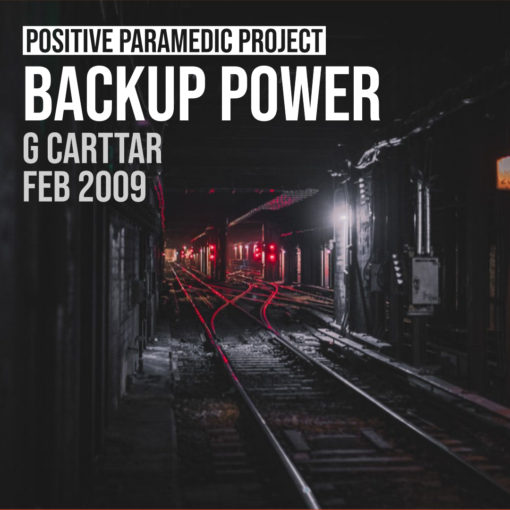 Editor’s note: I received this note a few minutes ago from a friend/colleague in Washington DC.
Editor’s note: I received this note a few minutes ago from a friend/colleague in Washington DC.
It’s a vivid up-close-and-personal reminder to stop, look & listen to the patient as a whole being and not just a collection of seemingly disconnected parts and episodes.
While she prefers to remain anonymous, trust me when I tell you this is a real account from a real person who came as close as you can to losing a loved one while all the while shouting, “Please listen to me. I know I’m not a doctor or a nurse or a paramedic but I know there’s something wrong.”
Pay attention to the patient, please. Practice big medicine, everyone.
Washington DC | 20120409
I learned a valuable lesson last week. The lesson was every hospital patient needs an advocate or really bad things can happen.
My husband had a “minimally-invasive whole hip replacement “— words that really don’t belong in the same sentence, but there they are. We selected a surgeon with an excellent reputation who specialized in hip replacement. Our hospital in Washington, D.C. is well regarded. So far, we did everything right.
The hip operation went exactly as expected. After surgery, my normally-healthy exercise-freak husband was lethargic with a high pulse. It hovered around 125.
I spoke to everyone who would listen about the pulse rate, the tightness in his chest, and his inability to eat. The staff assured me he was recovering normally. He told them he had calf pain. It was noted without comment. After three days, he was released and we came home.
The next day, my husband began charting his pulse with a very accurate iPhone app that shows heart rate. The numbers were still in the 120s and he had intermittent sweats. His chest was tight with a dull pain. He wasn’t eating.
When the visiting nurse came, she noted all of the symptoms: high pulse, calf pain, sweats, chest pain,no appetite and said he was coming along well.
At that moment I said to myself , ” Who is the fool here? ”
I called the surgeon, insisted on an appointment and we appeared in 30 minutes in his office. The surgeon looked at the incision, changed the bandage and suggested we go to Washington Radiology for a CT Scan. The scan revealed lots and lots of small blood clots traveling north from the repaired hip.
My husband was re-admitted.
Within minutes he had a massive anti-coagulant shot in the stomach, on top of the blood thinners he was already taking. The Interventional Radiology team inserted a filter through his neck to catch the clots so they wouldn’t become pulmonary embolisms and do permanent damage.
Three days later he is about to come home.
If I am to place any blame on the visiting nurses and/or the hospital, it is their complete failure to listen and put the facts together. There was no ” if X happens then Y may occur.”
The hospital was long on process and short on training. The staff was trained to read the machinery hooked up to the patient and really short on being trained to figure out what the numbers mean and what could be happening. Three days of blood clots and high pulse without one person raising a red flag? Astonishing.
If I had been willing to accept what was said and not be a tough advocate for my husband’s health; I doubt that he would still be above ground.
Our internist said, ” You saved his life, can you live with that?” — That is a final exam question with a full essay required.



